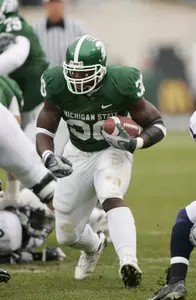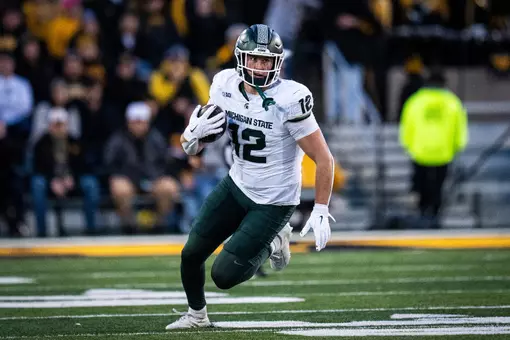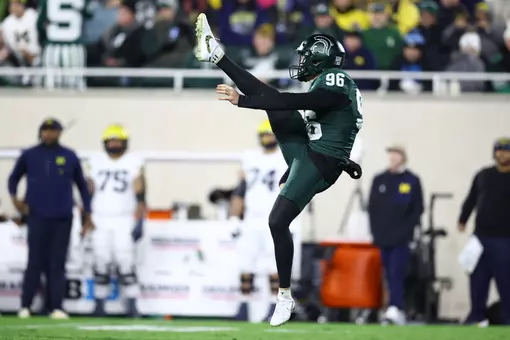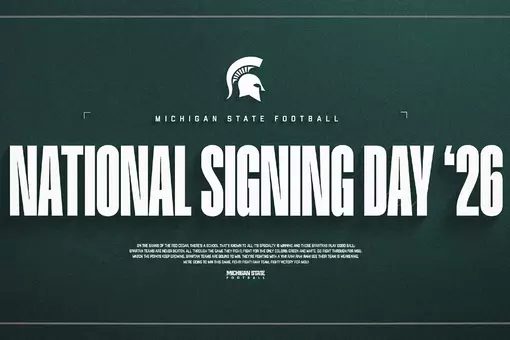
Prospect For NFL First Ran From Liberia
2/24/2008 12:00:00 AM | Football
Feb. 24, 2008
By GREG BISHOP
INDIANAPOLIS - Each evening at the N.F.L. scouting combine, Jehuu Caulcrick sits in a chair across from N.F.L. coaches and executives. They ask about Michigan State, where he played football. They ask about the small western New York farm town where he grew up.
And they ask about Liberia, the West African nation of his birth, the country ravaged by civil war from which he managed to escape.
Father assassinated, adopted brother killed, grandfather shot protecting grandchildren -- this is Caulcrick's story, up to age 9.
"I grew up facing a lot of adversity," he said.
Caulcrick said he lost count of the number of people he saw shot, stabbed, left for dead. He witnessed hundreds of deaths in a country where hundreds of thousands died.
His father, Jerome Blamo, was a politician and security chief for the secretary of state when civil war broke out in Liberia in 1989.
Caulcrick remembers his father clearly, describing him as caring and loving. He was the kind of father who took his children to the nearby soccer stadium nearly every weekend.
"He knew he was going to be endangering us," Caulcrick said last Thursday. "So he left, to protect us."
Then his mother, Bonita Caulcrick, came to the United States to try to obtain visas for her children. She was here when the war broke out.
Caulcrick lived with his grandparents at the time, and they bounced from refugee camp to refugee camp. Was he scared?
Caulcrick, sitting at a table at the N.F.L. scouting combine surrounded by a handful of reporters, laughed when someone asked that question. He flashed a trademark smile, wide, all gums. There was no time for fear.
"You're basically running for your life," he said. "You just had to overcome it."
When his mother reunited with her children after searching for them for months, the family traveled to the United States Embassy in the capital, Monrovia, in August 1992. They were told it would take two weeks to receive their visas.
Shortly after, the family went to a doctor's office, Caulcrick said, to get shots so they could move to the United States. They started reading a newspaper article: a massacre, 500 dead, 200 identified, including Jerome Blamo.
"It was shocking," Caulcrick said. "It was unreal. It was a feeling of disbelief."
In September 1992, Caulcrick's family did not so much leave Liberia as they escaped it. They ran through the night, miles and miles, toward safety. They eventually made it to the United States.
"I was fortunate," Caulcrick said.





